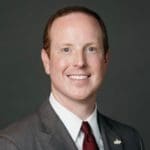Here’s a not-very-shocking fact: Every person who testified against the property tax reform bill (Senate Bill 2) on Tuesday, Feb. 5 was either an elected official with a taxing entity (including mayors and county officials), a city or county employee (fire and police chiefs) or a government-funded lobbyist.
As for the homeowners who travelled to Austin to testify, they were unanimous: Texans want property tax reform. And that’s what SB2 (and the identically filed House Bill 2) delivers, by simply requiring voter approval of any revenue increase desired above 2.5 percent for the most populated cities, counties, and school districts across Texas.
A reform like this offers both taxpayer protection and more local control.
From 2012 to 2017, local property taxes soared by almost 40 percent across the entire state. That’s well above population growth and inflation increases, which rose just 15.3 percent.
Over a longer period of time, the growth in taxation has been unrelenting. From 1998 to 2017, property taxes increased at an average annual rate of 5.8 percent. In other words, local governments got an almost 6 percent pay raise every single year for the last twenty years—without pause, even through tough times and recessions.
Those city and county officials—and those taxpayer-funded lobbyists—who testified on Feb. 5 said they need the power to raise taxes more than 2.5 percent per year without voter approval to enable them to deal with new growth—more residents and more businesses. But SB 2 excludes property tax revenue growth from new construction and improvements. Add to this the questionable argument about the Legislature passing along “unfunded mandates,” whatever that means, and you get more excuses instead of solutions.
This is not true for all locally elected officials, which it was good to see Collin County Judge Chris Hill support this pro-taxpayer bill because it empowers local voters.
Judge Hill was forthright when he testified before the Texas Senate on Property Tax, “Do not hide behind, ‘Our police and firemen will starve if you don’t let us raise your taxes by 8 percent every year.’ That is a farce, and the people have seen through it. They are tired of hearing it.”
There’s much truth to this statement because high taxation is always and everywhere a spending problem. This is why the reforms in SB 2 are so important for increasing transparency for taxpayers along with encouraging local governments to re-examine their spending priorities.
Take Austin, for example. It could look at contracts of $775,000 to clean one public toilet over five years, tighten up oversight of programs like the Matched Savings Account, which hands out $4,000 if you say you’ll start a business (apparently, no follow-through has been necessary), and re-evaluate Austin’s $165 million solar contract, at a time when the cost of other energy sources is dropping.
The fact is that Austin collects plenty of revenue to fund basic city services. That’s true of other taxing entities. And Texans are common-sense folks; local officials with real needs can take those needs to voters, make their case, and trust their constituents—who elected them—to do the right thing.
Texans need and deserve property tax reform. Fortunately, SB2 recently passed out of the Texas Senate Committee on Property Tax to send before the full chamber. The House Ways & Means Committee will hear their version soon.
Ultimately, this bill must be passed with the most restraint on local governments as possible while finding the political will to slow state spending and using excess revenue to provide property tax relief of lower tax bills.
This is a commentary submitted and published with the author’s permission. If you wish to submit a commentary to Texas Scorecard, please submit your article to submission@texasscorecard.com.





